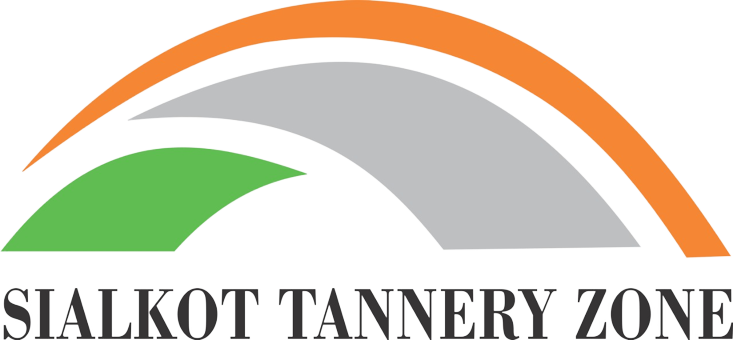ORGANIZATION
Sialkot is one of the major industrial cities in Punjab. The rapid industrialization and rising population of Sialkot has caused threats to the environment. Poisonous industrial and non-industrial waste is a real danger to the environment and management of the environment is deteriorating.
Leather Sector is one of the top most Foreign Exchange earning Industry of Pakistan. Besides it is source of employment and it is important that the Leather Industry may be developed on Modern Lines so as to multiply foreign Exchange Earnings as well as employment generation through improving production practices and environmental as well as quality concerns.
Currently around 250 tanneries are located in 10 different clusters, scattered all around Sialkot and suburbs. These scattered tanneries are unable to meet the international standards which are becoming more and more stringent with the passage time. Meeting the international standards needs proper infrastructure which is not possible to be extended to each tannery in scattered locations all around the city. The foremost and critical requirement for international trade and exporting leather goods is the environmental and social compliance. The buyers anywhere in the world are now obligated by their own country’s legislation to import goods from those manufacturers who possess internationally accredited certifications.
To achieve the above mentioned objectives, The Sialkot Tannery Association (Guarantee) Limited (STAGL) an offshoot of Sialkot Chamber of Commerce and Industry was established under the Company’s Act 1984 on 24/06/2004 for the purpose of establishing and maintaining the Sialkot Tannery Zone in order to resolve the environmental problems.
The project with the assistance from Government of Punjab will help in shifting the existing 230-250 tanneries scattered in ten (10) clusters in Sialkot city to a dedicated Tannery Zone in Khambranwala where around 396 Acres land has been purchased for the purpose in order to provide following modern facilities so is to unable the tanners to produce International Standard Leather and Leather Products.
- Common Effluent Treatment Plant
- Chrome Recovery Plan
- Common Facilities Centre
- Modern Leather Testing Laboratory
- Basic amenities and utilities
Moreover UNIDO as a executing agency is assisting Sialkot Tannery Association (Guarantee) Limited (STAGL) in the establishment of Combined Effluent Waste Water Treatment Plant through project titled “Mainstreaming Climate Change Adaptation through Water Resource Management in Leather Industrial Zone Development” being funded out of GEF.
The project is designed to support the integration of Climate Change Adaptation (CCA) considerations (water conservation, water treatment, water flow and flood management, capacity building and awareness raising regarding CCA measures and incorporating CCA concerns into the urban development plan) to a baseline project already initiated in Punjab. The project aims to address the local policy, capacity and technology barriers currently existing at the project’s target area. The goal is to demonstrate and implement a blueprint that can be replicated in other parts of the country for achieving holistic results.
Main aim of the Project is to encourage focused industrial growth in Sialkot by developing an international standard tannery zone in the region. The project is being executed as a Public Private Partnership.
The relocation of tanneries located in and around the city to a centralized location to provide various facilities like Common Effluent Treatment Plant, Chrome Recovery Plant, Solid Waste Disposal Site and Common Effluent Collection System. This would help in effective control of environmental hazards caused by the tanning industry in the country.
